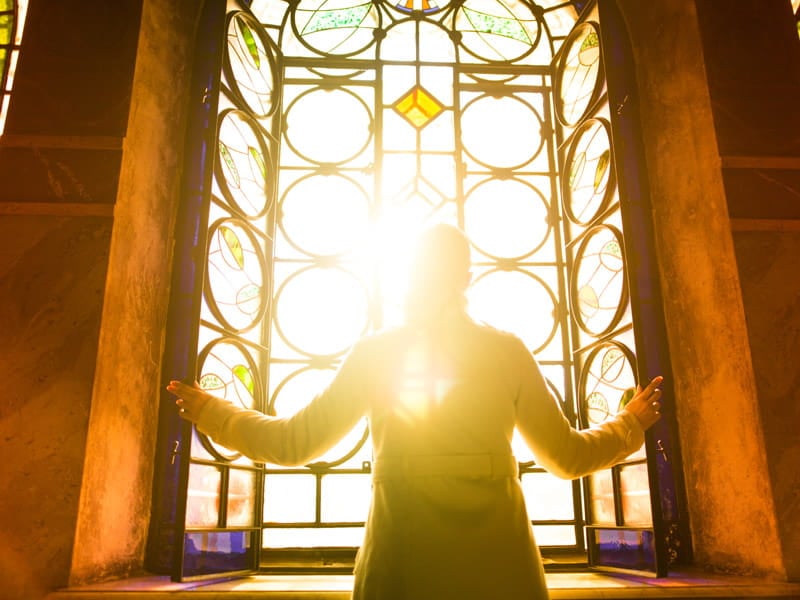The bishop's first high-profile pedophile case was in 1989 - eight years after he became head of the diocese. That case - both painful and disturbing for the bishop - prompted O'Brien to take immediate action.
He wrote the Vatican asking that the priest, the Rev. George Bredemann, be removed from the clerical state, a process more commonly known as defrocking.
But O'Brien went a step further - actually a giant leap ahead - of the majority of the U.S. dioceses.
O'Brien established one of the first diocesan sexual misconduct policies in the nation, making it clear that sexual abuse against children would not be tolerated under his watch.
"Despite numerous reports, and subsequent convictions of pedophile priests across the country, many American bishops have refused to institute diocesan policies on how to handle such cases," the Arizona Republic wrote when the policy was announced. "With Phoenix's policy, O'Brien joins only a handful of U.S. bishops who have had the courage to institute a policy on this sensitive subject."
The policy - which has been revised three times and is currently under review to ensure it complies with the U.S. Conference of Catholic Bishops' Charter - became a national model for other dioceses.
In the past few months, the national and local media has been searching for possible sexual misconduct cases against priests in dioceses across the country. O'Brien's reputation for openness left the local media perplexed when he appeared to remain silent and inaccessible during the flurry of media inquiries. In response, the media seem to assume the bishop - and the diocese - had something to hide.
In actuality, the bishop was concerned, but it had nothing to do with hiding sexual allegations or crimes. While today's information age demands immediate answers, O'Brien spent time in prayer and reflection, looking to God for spiritual guidance. His primary concern, as he has often expressed to his closest advisors, is to protect the victims, most of whom have requested their names never be revealed.
O'Brien said he worried that the current media climate of digging into sexual misconduct cases might lead them to identify the victims. If that happened, the bishop said, those who were harmed would be re-victimized. "We want to assist victims toward healing and reconciliation," O'Brien said. "We cannot completely cure the pain of what has been done before.
"Counseling can lessen that pain, but it can never be as though it never existed for those who experienced abuse," the bishop continued. "However, we can make every possible effort to heal and comfort old wounds, and prevent any future incidents."
The diocese always offers counseling to victims, alleged victims and their families, even when there has been no proof, admission of guilt, criminal charges or conviction, O'Brien said.
O'Brien, whom the vast majority of the diocese's half-million Catholics describe as a compassionate and pastoral leader, has apologized to Catholics and non-Catholics alike for not handling the current media climate in his usual open manner.
"On behalf of the church, the Diocese of Phoenix, and in my own name, I apologize for any mistakes or errors in judgment, and ask for your prayers and forgiveness," O'Brien said during a press conference.
"The Diocese of Phoenix plans to lead the nation in compliance to the charter," O'Brien said.
O'Brien went on to tell the media that he has permanently banned three priests from active ministry - the Revs. Joseph Briceno, Joseph Lessard and Harold Graf - and is requesting the Vatican defrock George Bredemann, Lan Sherwood and Mark Lehman. The latter three have convictions and are either serving or have served jail time.
He also announced the diocese is cooperating with the Maricopa County Attorney's Office investigation of another priest, the Rev. Patrick Colleary.
"Let me make clear that my objective and that of the Roman Catholic Church is to protect our children and young people, providing them with a safe environment," O'Brien said. "And, I want to assure you that no one in this diocese who commits crimes against youths will be protected by the church."
On Saturday, the Arizona Republic called the bishop's actions "some of the first and most sweeping steps taken since the U.S. Conference of Catholic Bishops voted overwhelmingly in Dallas this month to approve a charter that requires church leaders to purge offenders."
O'Brien said he is asking the Catholics in his diocese to pray for "for those who have been hurt by this scandal."
"We ask Jesus to let his mercy flow down upon the church and all the people of God, so that wounds are healed, relationships are mended and sinners are reconciled to our God who redeems us all," he added.
To read statements made by Bishop Thomas J. O'Brien and for more information on the Roman Catholic Diocese of Phoenix, please visit our website: www.diocesephoenix.org.

